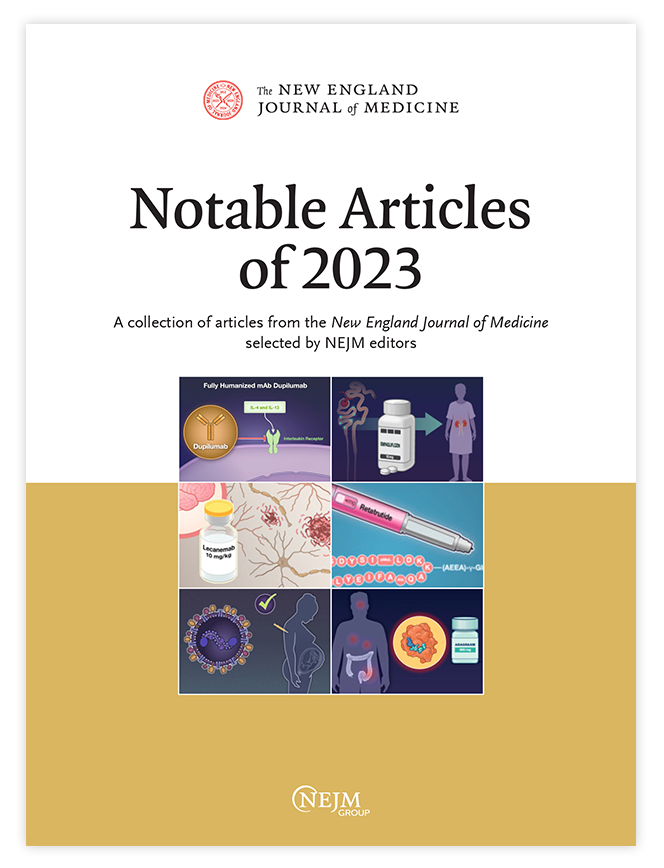增强CAR - t细胞治疗先前失败后的淋巴瘤。
IF 96.2
1区 医学
Q1 MEDICINE, GENERAL & INTERNAL
引用次数: 0
摘要
靶向CD19的嵌合抗原受体(CAR) T细胞已经改变了b细胞癌的治疗方法,但许多患者没有长期缓解。我们设计了一种抗cd19增强(装甲)CAR - t细胞产品(hucart19 - il -18),它分泌白细胞介素-18来增强抗肿瘤活性。在这项研究中,我们评估了huCART19-IL18在既往抗cd19 CAR - t细胞治疗后复发或难治性淋巴瘤患者中的安全性、可行性和初步疗效。使用3天的制造过程,我们以3×106至3×108的剂量给药hucart19 - il18阳性细胞。结果共有21例患者接受了huCART19-IL18治疗。62%的患者发生细胞因子释放综合征(47%为1级或2级),14%的患者发生免疫效应细胞相关神经毒性综合征(均为1级或2级)。未观察到意外不良事件。在所有剂量水平下均检测到稳健的CAR - t细胞扩增。在输注后3个月,81%的患者出现完全或部分缓解(90%置信区间[CI], 62至93),52%的患者出现完全缓解(90% CI, 33至71)。中位随访时间为17.5个月(范围3 - 34),中位缓解持续时间为9.6个月(90% CI, 5.5 -未达到)。在这项小型研究中,huCART19-IL18具有与其他CAR - t细胞治疗一致的安全性,并且在先前抗cd19 CAR - t细胞治疗失败后,在低细胞剂量的淋巴瘤患者中显示出有希望的疗效。(ClinicalTrials.gov号码:NCT04684563.)。本文章由计算机程序翻译,如有差异,请以英文原文为准。
Enhanced CAR T-Cell Therapy for Lymphoma after Previous Failure.
BACKGROUND
Chimeric antigen receptor (CAR) T cells targeting CD19 have transformed the treatment of B-cell cancers, but many patients do not have long-term remission. We designed an anti-CD19 enhanced (armored) CAR T-cell product (huCART19-IL18) that secretes interleukin-18 to enhance antitumor activity.
METHODS
In this study, we assessed the safety, feasibility, and preliminary efficacy of huCART19-IL18 in patients with relapsed or refractory lymphoma after previous anti-CD19 CAR T-cell therapy. Using a 3-day manufacturing process, we administered huCART19-IL18-positive cells in doses ranging from 3×106 to 3×108.
RESULTS
A total of 21 patients received huCART19-IL18. Cytokine release syndrome occurred in 62% of the patients (47% with grade 1 or 2), and immune effector-cell-associated neurotoxicity syndrome occurred in 14% (all grade 1 or 2). No unexpected adverse events were observed. Robust CAR T-cell expansion was detected across all dose levels. At 3 months after infusion, a complete or partial response was seen in 81% of the patients (90% confidence interval [CI], 62 to 93) and a complete response in 52% (90% CI, 33 to 71). With a median follow-up of 17.5 months (range, 3 to 34), the median duration of response was 9.6 months (90% CI, 5.5 to not reached).
CONCLUSIONS
In this small study, huCART19-IL18 had a safety profile consistent with other CAR T-cell treatments and showed promising efficacy at low cell doses in patients with lymphoma after the failure of previous anti-CD19 CAR T-cell therapy. (ClinicalTrials.gov number, NCT04684563.).
求助全文
通过发布文献求助,成功后即可免费获取论文全文。
去求助
来源期刊

New England Journal of Medicine
医学-医学:内科
CiteScore
145.40
自引率
0.60%
发文量
1839
审稿时长
1 months
期刊介绍:
The New England Journal of Medicine (NEJM) stands as the foremost medical journal and website worldwide. With an impressive history spanning over two centuries, NEJM boasts a consistent publication of superb, peer-reviewed research and engaging clinical content. Our primary objective revolves around delivering high-caliber information and findings at the juncture of biomedical science and clinical practice. We strive to present this knowledge in formats that are not only comprehensible but also hold practical value, effectively influencing healthcare practices and ultimately enhancing patient outcomes.
 求助内容:
求助内容: 应助结果提醒方式:
应助结果提醒方式:


